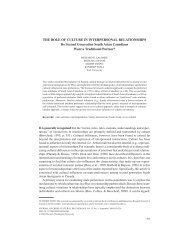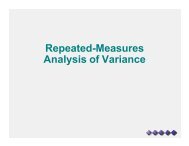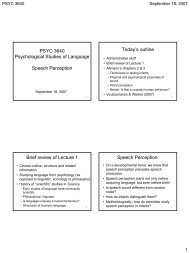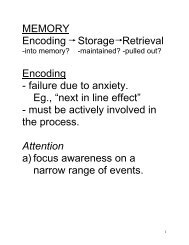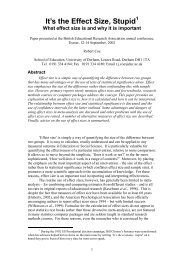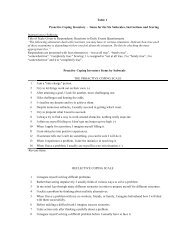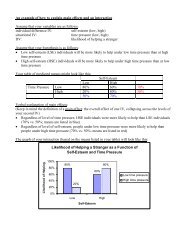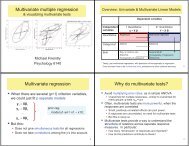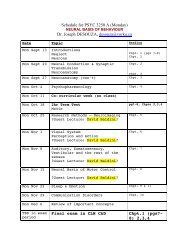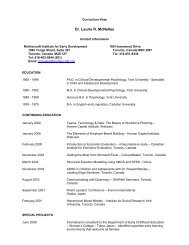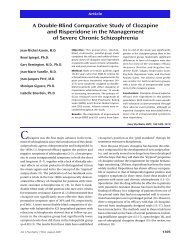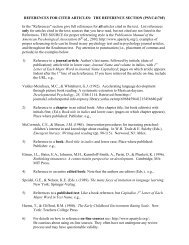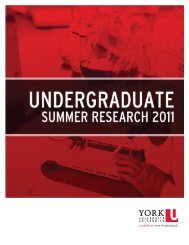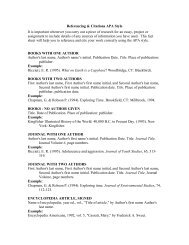The Drama of the Gifted Child (The Search for the True Self)
The Drama of the Gifted Child (The Search for the True Self)
The Drama of the Gifted Child (The Search for the True Self)
Create successful ePaper yourself
Turn your PDF publications into a flip-book with our unique Google optimized e-Paper software.
unknown, from which he never<strong>the</strong>less cannot free himself,<br />
because <strong>of</strong> his emotional ca<strong>the</strong>xis <strong>of</strong> "depravity," which is<br />
already joined to fear and guilt.<br />
Once more I was trying most strenuously to construct an<br />
intimate "world <strong>of</strong> light" <strong>for</strong> myself out <strong>of</strong> <strong>the</strong> shambles <strong>of</strong><br />
a period <strong>of</strong> devastation; once more I sacrificed everything<br />
within me to <strong>the</strong> aim <strong>of</strong> banishing darkness and evil from<br />
myself. (pp. 81-82)<br />
In <strong>the</strong> Zurich exhibition (1977) to commemorate <strong>the</strong><br />
centenary <strong>of</strong> Hesse's birth, <strong>the</strong>re was a picture with which<br />
<strong>the</strong> little Hermann grew up, since it hung above his bed. In<br />
this picture, on <strong>the</strong> right, we see <strong>the</strong> "good" road to heaven,<br />
full <strong>of</strong> thorns, difficulties, and suffering. On <strong>the</strong> left, we see<br />
<strong>the</strong> easy pleasurable road that inevitably leads to hell. Taverns<br />
play a prominent part on this road—<strong>the</strong> devout<br />
women probably hoped to keep <strong>the</strong>ir husbands and sons<br />
away from <strong>the</strong>se wicked places with this threatening representation.<br />
<strong>The</strong>se taverns play an important role in Demian,<br />
too. This is particularly grotesque because Hesse had<br />
no urge at all to get drunk in such taverns, though he certainly<br />
did wish to break out <strong>of</strong> <strong>the</strong> narrowness <strong>of</strong> his parental<br />
system <strong>of</strong> values.<br />
Every child <strong>for</strong>ms his first image <strong>of</strong> what is "bad," quite<br />
concretely, by what is <strong>for</strong>bidden—by his parents' prohibitions,<br />
taboos and fears. He will have a long way to go until<br />
he can free himself from <strong>the</strong>se parental values and discover<br />
his own "badness" in himself. He <strong>the</strong>n will no<br />
longer regard it as "depraved" and "wicked," because it is<br />
instinctual, but as an aspect <strong>of</strong> life from which no human<br />
being can be free at bottom—although <strong>the</strong> strength <strong>of</strong> <strong>the</strong>ir<br />
disavowal may be sufficient <strong>for</strong> some people to convince<br />
<strong>the</strong>mselves that <strong>the</strong>y are. Possibly, Hermann Hesse in his<br />
95



